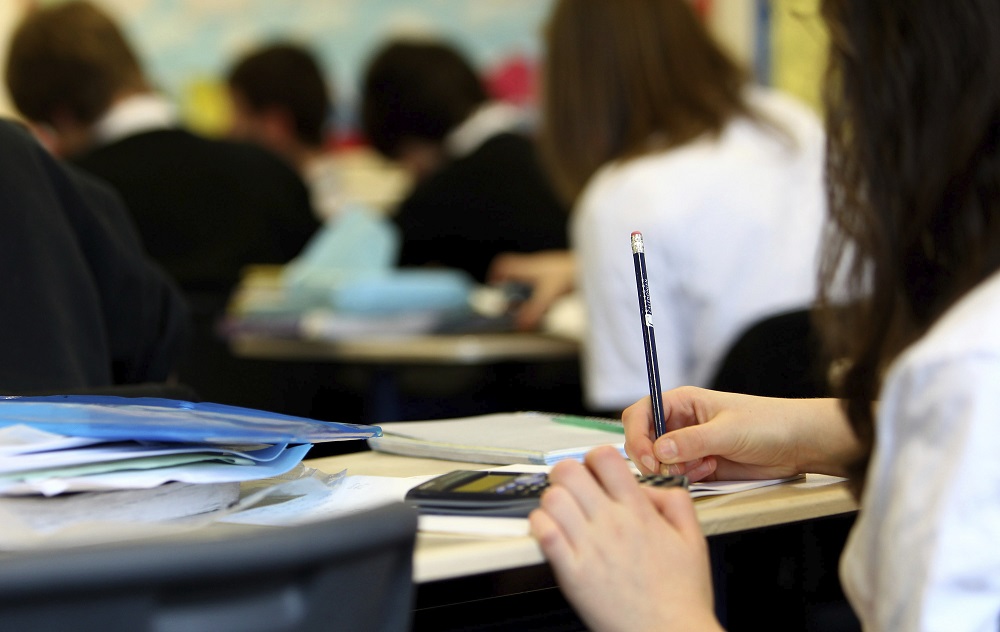
How do you define gifted students? The U.S. Office of Education describes them as “children and youth with outstanding talent” who can perform at high levels of accomplishment compared with their peers.
Professional researchers define gifted students as those who have above average abilities, high levels of task commitment and management, and high levels of creativity.
Gifted students can be advanced in some areas while being age-appropriate or even developmentally delayed in other areas. This makes it difficult for classrooms and educational organizations to provide the opportunities for advancement and challenge to gifted students who have such a wide range of skills and developmental needs.
Flexibility Is Key to School Programming
Schools need to provide individual programs tailored to a variety of personalities and developmental patterns. These programs include enrichment options, resource rooms, pull-out options, classes of special interest, community mentor programs, magnet schools, summer school, early college enrollment, and dual enrollment in high school and college.
Elementary schools and high schools need to be fully prepared to provide individual pathways for advancement and support for gifted students whose special talents may otherwise go unnoticed or ignored.
Frustration Can Mask Exceptional Talent
Gifted students can get easily frustrated when experiencing difficulty in core subject areas like reading, math, spelling, and handwriting. They can also have difficulty with organizing material and be easily distracted when getting instruction or taking tests.
This frustration can mask their special talents. The school needs to plan a differentiated curriculum which enables a faster track for expansion of talent and experience with real-world simulations and problems while at the same time allowing for gifted children’s learning challenges.
Research on gifted children often includes surveys given to the children directly. One such survey revealed that gifted children agreed special classes designed for them and math classes were challenging.
Mathematics is an especially difficult subject when it comes to differentiation for gifted students because the students learn at different paces. The sequential nature of math makes pacing an issue.
Contrary to what some educators believe, gifted students actually need more attention, not less, to advance their learning. They need a curriculum that is more challenging, broader and deeper, and is delivered faster than traditional methods allow.
Gifted children who were surveyed were not satisfied with classes like Science, Language Arts and Social Science where the pace was too slow and information was repeated too often. The students felt that they could not move on after mastering the class information. They felt there was too much emphasis on remembering facts and not enough on thinking skills.
They also commented that they did not have the opportunity to study their own areas of interest and were limited by the standard curriculum.
Most Classes Are Not Differentiated
A survey of third and fourth grade teachers has delivered a revealing profile of today’s classroom relative to the teaching practices involving gifted students.
The major finding in this study is that the majority of teachers said they made only minor modifications in the regular curriculum to meet the special needs of gifted students. The study included public and private school teachers, in urban and rural communities, in different geographic locations, and including classrooms with predominantly ethnic minorities.
Those teachers who did make changes for gifted students listed those changes as independent study, advanced readings, independent projects, value-added worksheets and reports.
There is clearly more work to be done in traditional classrooms to establish a commitment to differentiated curriculum from the top down so that schools can provide a consistent philosophy and ongoing program administration of course differentiation for gifted students.
Differentiation for Gifted Students Modifies Standard Content, Processes
A differentiated curriculum should include modified content, modified processes, and modified environment. Modified content means that the ideas, concepts and information can be accelerated, compacted, or reorganized. The pace of learning can be more flexible, with students encouraged to move through the material at their own pace, and when finished, move to more advanced learning.
Subject areas should be more integrated and concepts broader. Repetition should be minimized. Real-world problems and simulations should be used whenever possible.
Modified processes means that activities should be more intellectually challenging with questions requiring a higher order of thinking. The use of open-ended questions is better that true-false or multiple choice.
Teachers should follow Bloom’s Taxonomy and move from lower levels of memorization and recall to higher levels of analysis, synthesis and evaluation.
A modified environment is one that provides a variety of material and allows multiple styles of learning to be applied. The environment is student-centered, receptive, and non-judgmental. The teacher supports the students’ creative, inquisitive and energetic quest for advanced learning.
National Standards Exist for Teaching Gifted Children
The National Association for Gifted Children (NAGC) has developed a set of standards for teachers of gifted children. The key elements of these teacher guidelines include (but is not limited to):
- Understand the variances among gifted students.
- Possess a repertoire of differentiated curricula, teaching strategies.
- Foster an understanding of cultural differences.
- Encourage the promotion of self-efficacy.
- Promote social interaction that is positive.
- Support emotional health and safety.
- Develop appropriate plans and materials for gifted learners.
- Develop alternate methods of assessing knowledge, performance.
- Maintain ethical standards.
- Advocate for gifted learners.
- Collaborate with educators, students’ families, service-providers.
Parents Need to Be Advocates for Their Children
The first thing parents should do is find out if their children are really gifted or just bright. Sometimes bright children are ahead of the learning curve but would not be classified as gifted. Gifted testing (ideally at age 9 or 10) by professionals will provide needed clues.
If parents find out their children are gifted, they need to monitor the educational environment to make sure their children are being challenged and are being given opportunities to expand their knowledge and use their special skills.
If the school offers gifted testing, parents should take advantage of this as soon as possible. The reason is that the school district can provide a list of national resources and events that gifted children might be interested in. These enrichment programs can supplement the school’s own programs.
Parents should find out if their children’s needs are being met. If not, the parents should meet with teachers to ask about intervention programs. If there is a coordinator on the school staff, parents should also meet with that person.
Teachers are happy to have gifted students in their classes. Parents should work with teachers to find out how they are helping their child grow. If parents aren’t satisfied with the program, they can consider homeschooling or moving the child to a school for gifted children.
In recent years, there has been a better understanding of the special nature of gifted children, their unique learning styles and pace, as well as their unique problems and needs.
Parents who take the time to learn as much as possible about giftedness will be better prepared to help their children realize their full potential.




